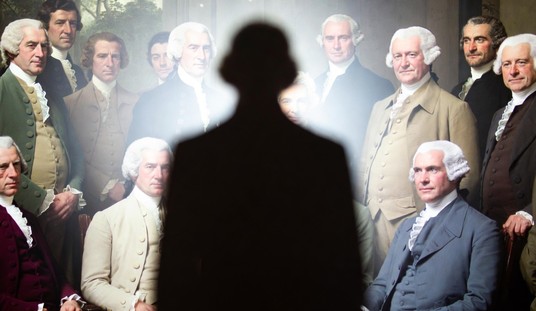I’d like to recommend a book to those of you with tween-age kids, particularly boys who are entrepreneurial-minded. The unnamed hero’s sweet but dotty grandmother gives him an old lawnmower her husband used to tinker with, encouraging him to make use of it. He starts by mowing his cash-strapped parents’ tattered and barren lawn, then is hired by a neighbor, then another – until he suddenly has a business. Along the way, the story addresses realistic economic issues (budgeting, banking, and payroll) as well as less realistic but fun issues (what happens when the Mob moves in on your turf, and what if you accidentally purchase the sponsorship of a young boxer?)
The secondary characters in this book are goofy and fun but also wise and helpful, and while I do take issue with a couple of things (e.g., the hero’s contract workforce turns out to be illegal immigrants), the book is overall fantastic for an ambitious kid needing just a little inspiration. I especially got a kick out of the chapter headings, which were all named for economic principles.
The name of the book? Lawn Boy.
No, no, not that Lawn Boy. This Lawn Boy, by Gary Paulsen, was published a decade before the controversial Jonathan Evison opus. Paulsen is an experienced children’s book writer with a fair-sized collection of books (including Lawn Boy 2) appropriate for ages 9-12. Evison is a literary writer who publishes ADULT books and stories, and he had no intention for his Lawn Boy to be placed in high school libraries.
Evison’s book is very, very different from Paulsen’s, sharing little beyond the name and a few situational things like lawn work and a focus on money. Evison’s Lawn Boy is adult literary fiction, for one thing. Paulsen’s book is goofy and frazzled in tone, while Evison’s is angry and resentful. Evison’s protagonist Mike Muñoz hated certain things about the world but was clueless about how to address those issues. It is no accident that his protagonist has been called a modern Holden Caufield. The controversial sex scene, an encounter between two ten-year-old boys, is referenced early on but takes up only a couple of pages in the middle of the book. Another sex scene, later in the book, was uncomfortable enough for me that my impulse was to skip those pages (I didn’t, and you’re welcome.).
If it were only those scenes that were the problem, this book would be inappropriate for kids younger than at least 16. It’s absolutely drenched in sexual frustration and the pursuit of sex for the sake of sex (and social prestige). It’s also hostile to capitalism and growth; though the main character wants to “get his own” one day, he’s fairly snotty about something he puts in mental quotation marks, the “free market.” He becomes a social justice warrior, though he’s kind of inept at that, fighting all the fashionable issues. In other words, it’s kinda preachy. This may be okay for some of the YA market, but anyone who knows anything about kids’ books knows that preachiness is the number-one turnoff for young readers.
On the good side, the protagonist has very kind words for libraries, all of which I agreed with. I suspect this may have led to a very interesting moment in the book’s career: the American Library Association (ALA) gave Evison’s book its 2019 Alex Award, designed to honor books written for adults but with particular appeal for teens. And here, I think, is where the problem started.
Related: The Left Continues to Rail Against ‘Book Bans’ That Aren’t Happening
Librarians can’t possibly read all the books that come in front of them. Rather, they must trust in the industry gatekeepers: that books have been properly age-classified, filtered through for quality and readability, and properly reviewed. Librarians go through sometimes dozens of different journals and catalogs to plan purchases, all of which must be approved; often they purchase books based on library user requests or the entire publication slate of certain publishers, and all the time they have to stay within budget for both physical and digital properties. It’s a daunting job, and I have all kinds of respect for it.
So what is a librarian to do when a major award is given to a book by the ALA — a book with a title that sounds, perhaps, vaguely familiar — but purchase the book WITHOUT reading it? Librarians can’t read most of their books, though I suspect not for lack of trying. And librarians do tend to trust their own professional organizations, which often leads to good sales for books honored by them.
The problem, however, is when the librarian is unable to admit to a mistake. Whether it’s mistaken identity or a misplaced trust in an authority figure, this seems to be happening here.
So what if Lawn Boy was recommended by the ALA? No authority gets it right every time. In each case where Lawn Boy was challenged by a parent or student, the librarian should have read it and used his or her own judgment. That’s what my high school librarian did when I brought Valley of Horses by Jean Auel to her one day — a book that is fine for older teens and even educational except for the four-page explicit sex scene in Chapter 2. She read the book, then moved it to the request-only section so she had control over who checked it out.
Today, however, removing an inappropriate book from the grasp of a child (as one might a sharp knife or a can of beer) is suddenly the equivalent of the Boston Blue Laws or the Nazi burning of “decadent” books. Media from the New York Times to NPR call out parents as a danger to the children — though parents are trying to protect their children from things they may not be emotionally prepared for. Meanwhile, Publishers Weekly has almost daily links in their newsletter to the latest banned book story — though the book is never banned but only removed from a grade school library. (And why wouldn’t they talk about this loudly and often? Banned books sell well.)
Perhaps the solution here is to insist on a clarification of what a banned book is. Is Playboy Magazine banned because high school libraries don’t stock it on the shelves? Are delightful books like The Narrative — a brilliant satire that eviscerates the Media Narrative and a lot of other “woke” things — banned either because our librarians won’t purchase them or because they could never get published in the mainstream publishing industry? Or are they just independent books that have to work harder? The publishing world is changing, and libraries are not quite keeping up.
I had always been supportive of Banned Book Week — the drawing of attention to books that were judged so dangerous that they should not be read. Today, I have to rethink that support. When To Kill a Mockingbird is set on a shelf next to Gender Queer, a graphic novel that includes explicit sexual images, I have to wonder how clearly people are thinking. Surely librarians can see how damaging this fight is to their most cherished cause — or perhaps not.
For now, the only good solution is for parents to be hyperaware of everything their children are reading at school and home while we all continue to fight for sanity and logic to re-enter the fray.









Join the conversation as a VIP Member